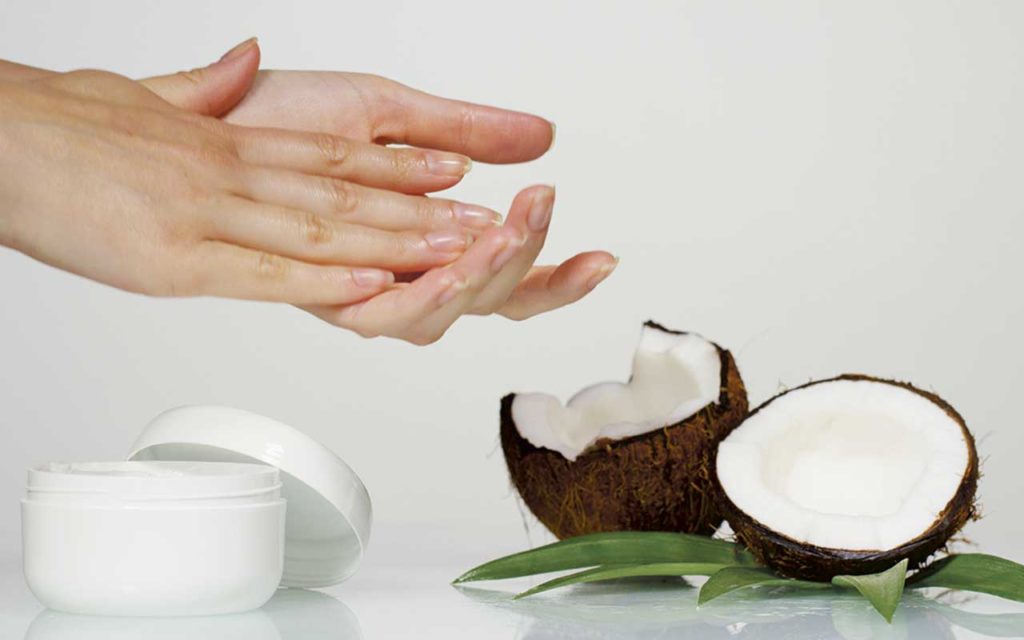By Claudia Heise, MD
The changing of seasons brings with it a dazzling array of fall colors, the sounds of children on playgrounds at recess, the aromas of fireplaces and leaves, the flavors of pumpkin spice, and the cozy fall flannels that make letting go of summer a little more pleasant.

For dry skin consider coconut oil, a natural product that is great at protecting and healing skin. Also consider changes to your diet and exercise. © HQUALITY / Adobe Stock
Unfortunately, fall also brings the sensation of itching and irritated skin. Fall and winter are the seasons of eczema for several reasons. Eczema is a chronic condition whose symptoms ebb and flow, worsened by a pro-inflammatory state in the body as well as lack of moisture.
Here are some tips to adapt to the season change and enjoy it—skin included.
First, the air is dryer in the fall. When combined with extra clothing layers that rub on your skin and dry it further, fall air exacerbates skin conditions. Eczema is a disorder of hyper-reactive skin that is easily inflamed by the surrounding environment. A key component of skin’s defense is a layer of natural oils and moisture, which can be stripped in the fall. So, this is the time to start using your moisturizers – look for a kind that is hypoallergenic and free of perfumes and dyes. Coconut oil is a natural, generally well-tolerated product that is great at protecting and healing skin. Also, avoid harsh soaps that can over-dry your skin.
The state of your immune system also impacts eczema.
The increase in calories we naturally eat as the weather gets colder, often with excess sugar in our favorite flavored seasonal drinks, can trigger a hyper-inflammatory state in our bodies which worsens eczema symptoms. What to do? You can still enjoy your fall comfort foods, but moderation is key. You can also counterbalance the intake with more walking, as low-impact aerobic exercise brings natural oils to the skin surface.
Also, consider eating probiotics.
While your gut is your innermost organ and the farthest from your skin, it’s central to your immune system. It serves a crucial role in balancing the inflammatory status of your body. You can fortify your immune system with probiotics and even prebiotics, which are nutrients that help support good gut bacteria. Good prebiotics that we have in local abundance are blueberries and oregano.
 Sometimes eczema cannot be managed with these simple measures alone. Sometimes other skin conditions can masquerade as eczema. If you think you might have a more serious case, please reach out to your primary care provider.
Sometimes eczema cannot be managed with these simple measures alone. Sometimes other skin conditions can masquerade as eczema. If you think you might have a more serious case, please reach out to your primary care provider.
Content provided by Northern Light.
Claudia Heise, MD
Dr. Heise practices at Northern Light Primary Care in South Portland (formerly Mercy Primary Care South).





